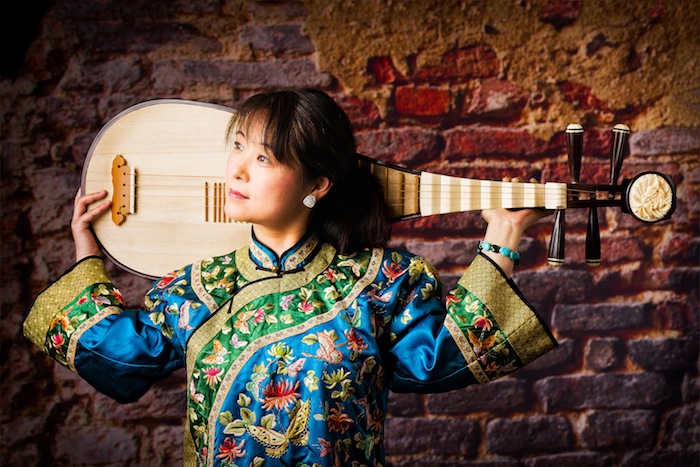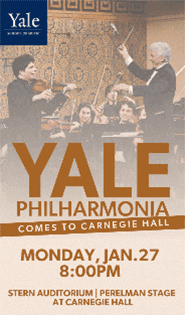Chamber Music Society packs the house for evening of new Chinese music

Pipa player Wu Man performed at the Chamber Music Society of Lincoln Center’s program of Chinese music Thursday night.
It may be surprising that two concerts of new Chinese music sold out the Rose Studio for the Chamber Music Society of Lincoln Center, but that is a testament to the artists involved: the venerable Shanghai Quartet, pianist Gloria Chien (a member of CMS Two), and Wu Man, a virtuoso on the pipa, a traditional Chinese instrument. Each of the composers was present for brief interviews with Wu Han, the Society’s co-artistic director.
From Ye Xiaogang, artistic director of the Beijing Modern Music Festival, came Colorful Sutra Banner (2006) for piano trio, inspired by the traditional prayer flags dotting the Tibetan landscape. With Weigang Li on violin, Nicholas Tzavaras on cello, and Chien at the piano, the group began with declamatory accents and double stops, along with high-flying tremolos and trills on the violin. Those trills, amplified by Chien’s lovely embellishments, evoked the banners’ fluttering motion. But eventually the mood seemed more sober than celebratory—even tinged with sorrow and agitation, as ghostly pizzicatos ended on a somber note.
Composer Zhao Lin’s father, Zhao Jiping, is the renowned composer of over 50 film scores, most notably Raise the Red Lantern, which won over a dozen international awards after its 1991 release. At the urging of cellist Yo-Yo Ma, the younger Zhao created a small suite based on the film, resulting in Red Lantern for Pipa and String Quartet (2015). Its five movements run the gamut from gentle passion of the opening, “Prelude-Moonlight,” to the exuberance of “Wandering” and the nostalgic vibe of “Love.”
To lush passages for the quartet—with violinist Yi-Wen Jiang and violist Honggang Li completing the group’s rich blend—Zhao added the tangy timbres of the pipa, an ancient, four-stringed plucked instrument resembling a mandolin. The Shanghai players demonstrated remarkable consistency, pouring out rivers of lush, finely balanced tone to illuminate the suite’s range of emotions. But the star was pipa virtuoso Wu Man, whose stunning, spidery fingerwork made one appreciate the instrument anew, whether in meditative strains or the fiery outbursts of the final pages. She also introduced the fourth section, “Death,” with a feverish ostinato on wood block, over which the strings poured out handsome chorales.
“Are you from the FBI?” was Bright Sheng’s hilarious reply, after Wu Han began reciting a list of his achievements. Among his most notable projects, in the fall of 2016 the San Francisco Opera gave the world premiere of Dream of the Red Chamber. In Dance Capriccio, a piano quintet written in 2011 for Peter Serkin and the Shanghai Quartet, Sheng made slight revisions for this performance.
In roughly 12 minutes, Sheng uses Sherpa folk music and its sharply accented rhythms–bringing to mind Kodály’s Dances of Galanta or Janáček’s Lachian Dances–with serene interludes for contrast, to create a brilliant showpiece for the five players. The piano role, dazzlingly done by Chien, uses the instrument in a more percussive mode, as the strings gradually accelerate to the abrupt punch of the conclusion.
In between, the quartet performed Zhou Long’s Song of the Ch’in (1982), inspired by an 8th-century poem by Liu Tsung-Yuan, and honoring the titular instrument—also plucked, but with seven strings. Zhou combines a soft cloud of pizzicatos with traditional melismatic qualities of Chinese melody, for an appealingly nostalgic palette. Using present-day instruments to construct a glance at the past, the four string players outdid themselves in delicacy and focus.
The live stream of this performance is available for viewing for 72 hours: https://www.chambermusicsociety.org/watch-and-listen/live/new-music-april-13-2017-livestream/

